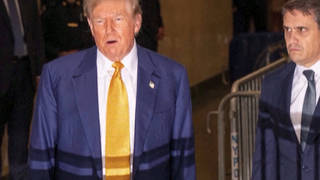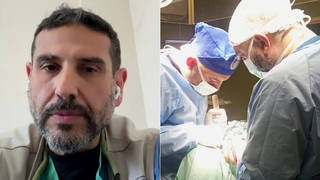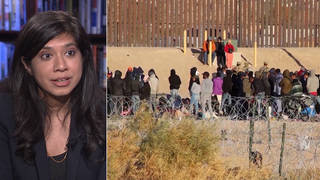Governments across the world are moving to shore up confidence in the global financial system by spending hundreds of billions of dollars to bail out private banks. Britain has announced plans to spend $37 billion to partially nationalize three of the country’s largest banks. In what has been described as the most dramatic extension of state ownership in the British economy since World War II, the government is moving to take control of the Royal Bank of Scotland and the lender HBOS. British Prime Minister Gordon Brown said, “Today’s plan is unprecedented but essential for all of us.” Germany is considering a bailout of nearly half-a-trillion dollars for German banks. Spain and Italy have also provided cash to bail out their ailing banking sector. In Washington, the Bush administration continues to discuss the possibility of partially nationalizing US banks with funds from the more $700 billion bailout. The coordinated international response comes following a weekend of emergency talks in Washington.
Reuters financial analyst Nick Edwards: “These measures are the first step really to preventing the financial system from melting down. It’s the globally coordinated action that the markets and investors were looking for last week. The G7 delivered some kind of statement. Europe has really built on that. There’s a sense of confidence building that finally policymakers have a grasp on what’s required.”










